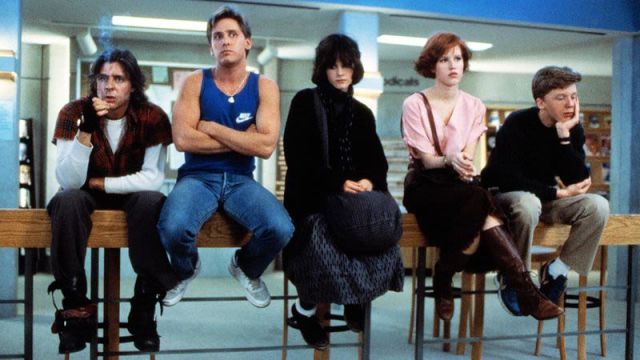Breakfast Club: the classic Gen X movie

What do Bill Clinton, George W Bush and Donald Trump have in common (apart from the obvious)?
The answer is that they were all born in the same year, 1946. It’s a coincidence that illustrates the enduring power of the Baby Boomers – the post-war generation born between 1945 and 1965. That makes Barack Obama (born 1961) a Boomer too, though one of the younger ones.
The next generation – ie ‘Generation X’, born between 1965 and 1980 – may have to wait some time for its turn in the White House. Even if Trump is not re-elected in 2020, most of the likely alternatives are also Baby Boomers (or even, like Joe Biden and Bernie Sanders, pre-boomer war babies.
Therefore, it might not be until 2024 or 2028 that a Gen Xer gets a crack at the Presidency. However, by that time the older members of the generation after X – the ‘Millennials’ born between 1980 and 1995 – will be old enough to run for the top job. This raises the alarming prospect that there will never be a Generation X President of the United States.
Why should that matter? A new book by Matthew Hennessey, deputy op-ed editor at the Wall Street Journal explains what’s so special about an often overlooked generation. Entitled Zero Hour for GenX: How the Last Adult Generation Can Save America from Millennials it is reviewed for the American Conservative by Charles F McElwee:
“Hennessey… argues that Generation X is the country’s greatest check on a dystopian technological future. It is Gen Xers who can recall life before Big Tech’s omniscience, restores values extinguished by modern norms, and bridge the gap between Boomers’ lingering hubris and Millennials’ infectious callowness. Theirs is a generation victimized by timing—too young for the halcyon ’90s, profoundly traumatized by 9/11 and the Great Recession, and immobilized by the present turbulent age.”
The tech bit is certainly true. Gen X (to which I belong) was the last generation (in the developed world) to have an analogue childhood. There was no internet, no mobile phones and no social media. As for computer games, those were around, but on steam age storage media – like cassette tapes that would take ages to load (providing the tape didn’t get chewed up by the player and your dad’s computer didn’t crash).
Of course, it wasn’t just Gen X who lived through the subsequent digital transition – everyone older than us did too (if they were paying attention). But I think it meant more to us because it coincided with our own transition from infancy. We literally matured with the technology.
McElwee says that Gen X grew up with “just the right dose of technology”. I’m not sure about that, but at least we know the difference between the digital and pre-digital worlds. Gen X are the first-generation settlers of cyberspace, with an appreciation of what we’ve gained as a result – and what we’ve lost:
“Baby Boomers, now seniors, seem unconcerned with Big Tech’s grip on society. After all, passively scrolling on an iPad is a leisure, not a burden. Millennials, meanwhile, have surrendered themselves to a pixelated existence. Life has become digital, told in short stories and filtered photos for hidden, dopamine-feeding advertisers.
“…In response to this rapid change, Hennessey believes Generation X must remind society of forgotten behaviors, products, and standards…”
Of course, not every Baby Boomer is disengaged from this issue, nor is every Millennial (and Post-millennial) so glued to their screen as not to notice the outside world. Yet Hennessey is on to something when he says that “the members of Generation X have an awesome responsibility to keep faith with reality”.
Admittedly, this overlooks the central role that television played in warping our ideas of reality, but at least the one-eyed monster – unlike the smartphone – didn’t follow us around. It was possible to head out into the world without a digital tether. And despite the lack of a constant connection to home, school and friends, we generally had more freedom to explore the world than today’s young people.
I suspect we also had a greater inclination to use (and abuse) this latitude. Because diversion wasn’t available at the swipe of a screen, we lived with the ever-present threat of pure, undistracted boredom. When we couldn’t escape it, we had to put up with it – an invaluable test for any young mind; and in some cases, a spur to creativity and/or mischief.
So, perhaps, Matthew Hennessey is right. The on-coming wave of Gen X leaders could provide the refresh that our Boomer-dominated political system so desperately needs.
One word of warning though. For all, the nice things that can be said about Gen Xers, the fact is that crime rates peaked just as we reached adolescence / early adulthood. That makes us the most delinquent, and indeed violent, generation in modern history.
Perhaps we should skip to the gentle Millennials after all.










Join the discussion
Join like minded readers that support our journalism by becoming a paid subscriber
To join the discussion in the comments, become a paid subscriber.
Join like minded readers that support our journalism, read unlimited articles and enjoy other subscriber-only benefits.
Subscribe